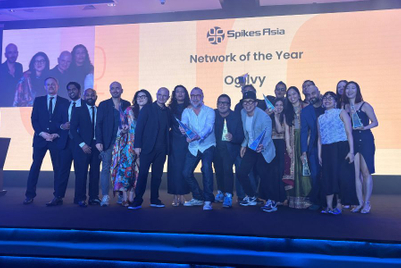
In preparing Ovaltine & Elephants: A Cultural Survey of Myanmar, Flamingo executives met everyone from tattoo artists and entrepreneurs to Myanmese mothers and young netizens to dig a little deeper into one of the fastest growing markets in Southeast Asia. Emma Gage, MD, and Harriet Robertson, senior director, shared their discoveries with Campaign Asia-Pacific recently in Singapore. Edited excerpts of the interview follow.
Can you share some of the findings from the book?
Gage: From the outside looking in, you see a country that has opened up, and everyone thinks they must be so optimistic. And they are, especially on the back of the recent election win. But what’s interesting is just how guarded they are—still the fear that things can change very quickly, nothing is guaranteed.
What’s also interesting is that confidence in products/brands is more to do with which countries each area borders (and so exposure) versus level of development.
Yangon & Mandalay benefit from strategic locations for internal and external investment. The Arakan Mountains enclose Myanmar’s fourth largest city, Pathein, which creates a very insular market that is very dependent upon local products. Mawlamyaing and Monywa share borders with Thailand and India, respectively, and this means there’s been a thriving black market even throughout military rule—people are much more knowledgeable about foreign products
How do you see the recent election results changing the landscape for brands?
Robertson: There’s a sense of excitement on the street and the turnout was huge. I don’t know how the elections will have direct consequences, but it is turning a new page in the book. Brands aren’t that established to jump on the election bandwagon and no brands did any activation.

Gage: A lot of brands think it’s low-hanging fruit and they can just go in and be the category. But it’s more of a long-term game. There’s not a whole lot of trust around new brands entering. This is because Myanmar is a deeply collective society, and decision-making happens at a community level. I think the election will start to change things and some problems might ease.
How are big brands entering and marketing to consumers in Myanmar?
Gage: There are some brands that successfully established themselves as the category generics. They got in early or never left, and as a result they define the category. Newcomers are compared to them and they’ve obviously had a lot of time to establish themselves as the trusted source for consumers, to embed themselves in culture.

At this stage it’s very much about gaining distribution, establishing the right portfolio, getting pricing right and of course targeting.
Advertising is very basic by the standards of developing countries. Local ads are often highly functional and take form of dancing, jingles, celebrities, etc. There are a lot of brands getting awareness of the product and logo using posters and outdoor media that give a sense of scale and ubiquity. Functional advertising is also common; consumers aren’t incredibly brand literate and they’re at a stage where even the presence of brand advertising is relatively new and novel. There’s little evidence of international brands localising communication for Myanmar—outdoor creative is often directly imported from Thailand or China.
What’s your advice to brands looking to enter this market?
Gage: Mobile-first has to be a thing here. The recent opening up of telecoms restrictions, overnight slashing of SIM card prices, cheap Chinese smartphones flooding over the borders and a highly competitive telecoms market make it very attractive. Mobile is a status symbol for young Burmese and a vital way to do business. They’ve just skipped past the feature-phones phase. In a market with poor infrastructure, mobile seems like the smartest way to connect and a huge opportunity for brands.
You may also like:
- Navigating the new frontiers: Flamingo's Emma Gage outlines the rigorous approach that's necessary to enter 'frontier markets'.
- The above article is part of Cultural Radar, a long-running series on a wide-range of culture issues, contributed by Flamingo


.jpg&h=334&w=500&q=100&v=20250320&c=1)

.jpg&h=334&w=500&q=100&v=20250320&c=1)
+(1).jpg&h=334&w=500&q=100&v=20250320&c=1)

.jpg&h=334&w=500&q=100&v=20250320&c=1)



.jpg&h=334&w=500&q=100&v=20250320&c=1)






.jpg&h=268&w=401&q=100&v=20250320&c=1)
